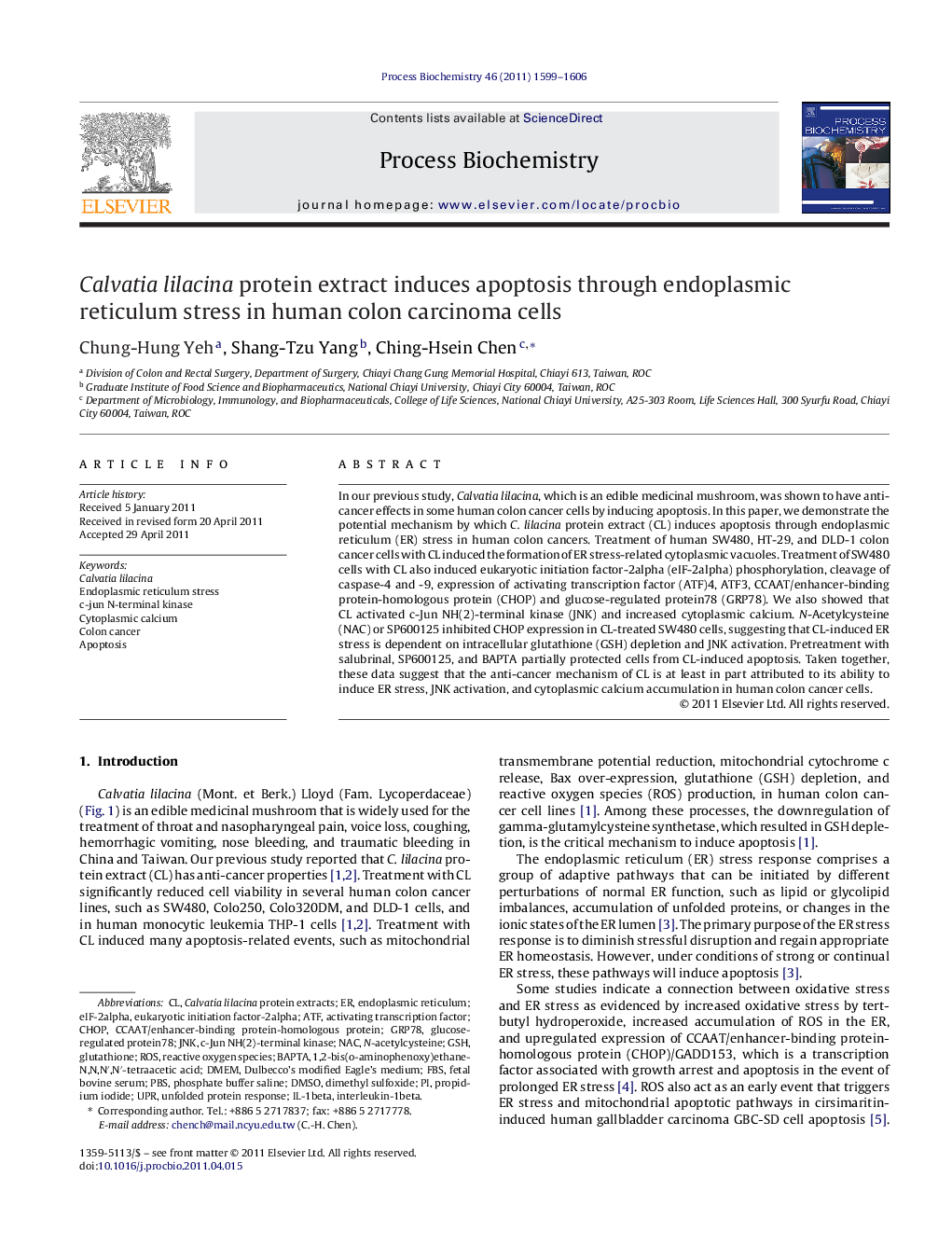| Article ID | Journal | Published Year | Pages | File Type |
|---|---|---|---|---|
| 35254 | Process Biochemistry | 2011 | 8 Pages |
In our previous study, Calvatia lilacina, which is an edible medicinal mushroom, was shown to have anti-cancer effects in some human colon cancer cells by inducing apoptosis. In this paper, we demonstrate the potential mechanism by which C. lilacina protein extract (CL) induces apoptosis through endoplasmic reticulum (ER) stress in human colon cancers. Treatment of human SW480, HT-29, and DLD-1 colon cancer cells with CL induced the formation of ER stress-related cytoplasmic vacuoles. Treatment of SW480 cells with CL also induced eukaryotic initiation factor-2alpha (eIF-2alpha) phosphorylation, cleavage of caspase-4 and -9, expression of activating transcription factor (ATF)4, ATF3, CCAAT/enhancer-binding protein-homologous protein (CHOP) and glucose-regulated protein78 (GRP78). We also showed that CL activated c-Jun NH(2)-terminal kinase (JNK) and increased cytoplasmic calcium. N-Acetylcysteine (NAC) or SP600125 inhibited CHOP expression in CL-treated SW480 cells, suggesting that CL-induced ER stress is dependent on intracellular glutathione (GSH) depletion and JNK activation. Pretreatment with salubrinal, SP600125, and BAPTA partially protected cells from CL-induced apoptosis. Taken together, these data suggest that the anti-cancer mechanism of CL is at least in part attributed to its ability to induce ER stress, JNK activation, and cytoplasmic calcium accumulation in human colon cancer cells.
